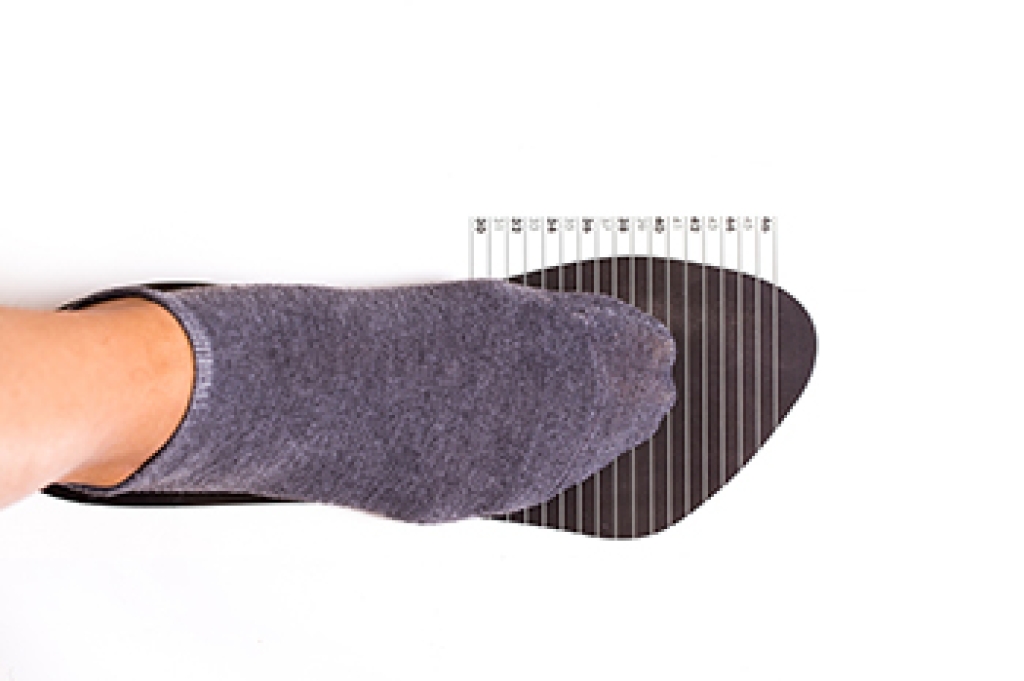
Wearing shoes that fit properly helps to prevent ailments and conditions in the toes, feet, and ankles. Experts agree that measuring both feet each time you try on shoes is a must because the feet often change shape as you get older and may be different sizes. This is especially important when buying shoes for children. Look for shoes that best fit the shape of your feet, have a roomy toe box, and fit snugly but not tight. If you must wear high heels, limit the height to 2 inches and avoid pointy toes. Plan to try on shoes at the end of the day when your feet are at their largest size. Stand up in the shoes and walk in them. If the shoes are uncomfortable in the store, either too tight or too loose, try a different size or width. Athletic shoes that have laces and high tops are recommended for better foot and ankle support. You should be able to wiggle your toes inside the shoe while standing. Look for shoes made of mesh or other flexible material, as these will provide more comfort. If you have existing foot, toe, or ankle problems, it is a good idea to ask a chiropodist for help in choosing the type of shoe that works best for you.
Plantar fasciitis can be painful and interfere with your daily activities. If you are experiencing foot or heel pain and believe you may be afflicted with plantar fasciitis, please consult with one of our chiropodists from West Toronto Foot & Ankle Clinic Inc. . Our chiropodist will assess your condition and provide you with quality foot and ankle treatment.
What Is Plantar Fasciitis?
Plantar fasciitis refers to the inflammation of the plantar fascia, a ligament that runs along the bottom of the foot and connects the heel bone to the toes. Repetitive activities, such as running or jumping, can injure the plantar fascia over time. Plantar fasciitis can also be caused by flat feet, high arches, pregnancy, and activities that put excessive pressure on your feet, like standing all day for work. When the plantar fascia becomes inflamed, it causes pain and discomfort.
Symptoms
Typical symptoms of plantar fasciitis include:
- Stabbing pain near the heel
- Pain that is worst in the morning or after a period of rest
- Pain that increases after exercising
- Swelling
- Tightness in the Achilles tendon
Diagnosis
Plantar fasciitis is typically diagnosed via medical history and physical examination.
Treatment
Treatments for plantar fasciitis include resting and icing the affected foot, stretching the foot, taking medications to reduce inflammation, and wearing orthotics. In severe cases where pain does not improve with conservative treatments, injections or surgery may be recommended.
If you have any questions please feel free to contact our office located in Toronto, ON .
